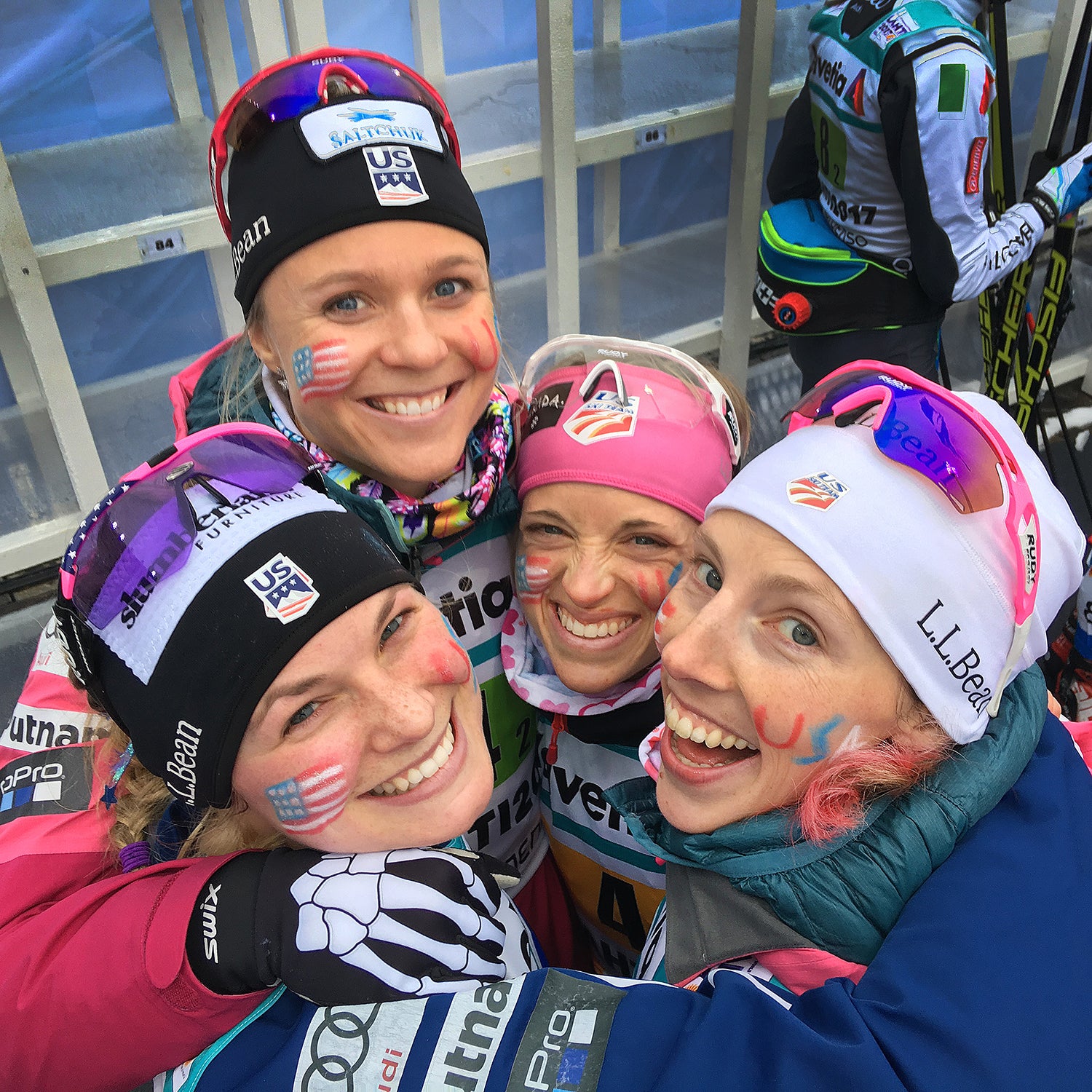A few months before the 2015 Nordic World Championships in Falun, Sweden, the women on the U.S. cross-country ski team were starting to get anxious. Jessie Diggins had an idea to calm the squad’s jitters and refocus everyone on racking up medals: make a music video. “We had all this nervous energy,” says the 26-year-old Diggins. “But it’s hard to worry about your next race when you’re doing the Macarena.”
She choreographed a dance routine to Bruno Mars’s “Uptown Funk” and, over the next several weeks, roped in the entire women’s team (and some male skiers, too) to shoot various scenes, lip-synching while moonwalking in ski boots through the streets of quaint European villages.
went viral, racking up millions of views before it was finally pulled from Facebook. “We didn’t have the rights to the music,” explains Diggins. But the stunt served its purpose. Diggins came away from the World Championships with silver, and teammate Caitlin Compton Gregg won bronze. “We’ve taken an individual sport and turned it into a team sport,” says Diggins. “We’re always cheering each other on and boosting each other up as much as we can. I see my teammates more than I see my actual family.”
That group mentality has helped elevate a traditionally also-ran cross-country ski team to one of the best in the world. Since 2013, six American women have stood on World Cup podiums a total of 27 times. Much of the credit for that goes to Kikkan Randall, the pink-haired star who, with 13 wins, has more World Cup victories than any other American. “It used to be that everybody was on their own plan,” says Randall. “But when we come together and push each other, we all improve.”
In South Korea, American cross-country skiers will be looking to win the team’s first Olympic medal since 1976, when Bill Koch won silver. The chances are good. “I don’t even think it takes a perfect day in the team sprint to get us on the stand,” says Randall.
But first, another music video. “If we can get the rights, I’ll be all about choreographing a new dance routine,” says Diggins. “It depends on whether Macklemore gets back to us.”
Bringing Your Plus-One
How new-mom athletes are shaking up the Games
Back in 2016, when cross-country skier Kikkan Randall was planning her first child, Breck, she timed the delivery so that she could be back in shape by the time the Winter Games in Pyeongchang rolled around. She wasn’t alone—three other top American and European nordic racers had babies within five months of one another. At the time, the International Ski Federation classified new moms and pregnant women as injured, which came with a rankings penalty and put sponsorships at risk. “When men want to have a family, they don’t have to stop competing or potentially lose their livelihood,” Randall says. So she and others petitioned the FIS to accommodate new moms. Starting last year, there was designated space for breastfeeding at races, housing assistance for families, and even team babysitters, policies that will continue in South Korea. Nordic is the first Olympic sport to institute a program of this kind, and success could determine whether it’s adopted by the International Olympic Committee. “Having a baby was my choice,” Randall says. “But I’m in a sport where you develop in your late twenties. I didn’t want to wait, and I didn’t want to walk away.” —Heather Hansman
To learn more, visit . The Olympics begin live on Feb 8.


